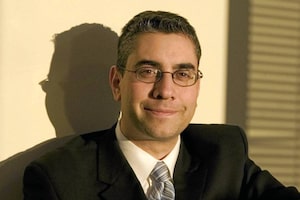.A young hand holding an elderly pair of hands.tyler olson
When Bob passed away, Mary (who was 82 and definitely slowing down) was suddenly, for the first time in her life, responsible for all things financial. She was not only unprepared, but would clearly need significant help to fill the void left by Bob in this area.
Mary turned to her 56-year-old son, Steven, who had maintained a careful distance from his dad when it came to personal finances. It was something that Bob just didn't feel comfortable discussing.
Now Steven had two challenges:
1) Helping his mother to get a handle on a number of financial issues ranging from how to pay the bills to getting the bank accounts changed to how to handle the investments;
2) Where in the world were all the papers, accounts, files, contracts and passwords?
The second challenge was most immediate. Steven and Mary tried to connect the dots on various conversations, go through papers, make calls to an investment person, an insurance person, a banker, and an old friend who had convinced Dad to make a loan on a business. What was nagging at Steven and Mary was the fact that they were sure they were missing some things, but couldn't be certain.
The whole process was very stressful for Mary and Steven and one they had both secretly dreaded.
I think we all recognize a Steven or Mary in our lives. Perhaps it is you, or a parent or a close friend.
These stories raise a few issues that you and your parents need to consider:
A. If something happens to my parents, how do I know where everything is and whom to call?
B. If something happens to my parents, is there a financial planner who is truly our "go to" person, whom we trust and who has an overall picture of their financial world?
C. As we age, our advisers (whom we have known for years) age too. Does it still make sense to have them as our parents' financial advisers when we need someone to be actively involved for the next 15 or 20 years?
D. Your parents' financial lives may have become complicated along the way. All of their advisers' good advice may have led to multiple accounts, a holding company, a trust, properties. They may now want to simplify and co-ordinate their financial life - make it smaller, not bigger.
To help with the challenge of "where is all of Dad's stuff held," TriDelta has put together a guide called the "All in One Place Financial Guide." This is a guide that can be either saved as an electronic document or printed out and stored - possibly along with a will. It will allow the reader to easily track down important documents, investments accounts, names of advisers, passwords and other key pieces of information. In many cases, this guide can save immeasurable time, minimize stress and, in some cases, add meaningful financial value by finding assets that you weren't aware of, and by minimizing the legal costs related to having a lawyer track things down.
If you would like a free copy of this guide, please e-mail my colleague Anton Tucker and he will get a copy to you.
When it comes to some of the other issues, my best advice is to discuss this article with your parents (especially if they are now 65-plus). Now might be an opportune time for your parents to do a fee-only financial plan to try to co-ordinate and simplify their financial picture. Ideally, at least one of the meetings takes place with a member of the next generation. It might even be a gift from an adult child to a retired parent.
As a final comment, you might be wondering what the "Adviser Secret" is in this column. The answer is that this is more of an "adviser omission." The issues raised in this column are very real, and very important, but are rarely discussed in depth by a financial adviser. The reason is that it doesn't really involve selling a product. Whatever the reason, your concern is trying to avoid being in the position of Steve or Mary. Now is the time to act.
Ted Rechtshaffen is president and CEO of TriDelta Financial Partners, a firm that provides independent financial planning advice. He was vice-president of business strategy at a major Canadian brokerage firm and found that the interests of the client were often not aligned with the interests of the adviser or the interests of the company.
This is part 13 in a series that looks inside the financial services industry at what advisers tell their clients and - more importantly - what they don't.
|
Other articles in Ted Rechtshaffen's Adviser Secrets series:
|
 Ted Rechtshaffen
Ted Rechtshaffen